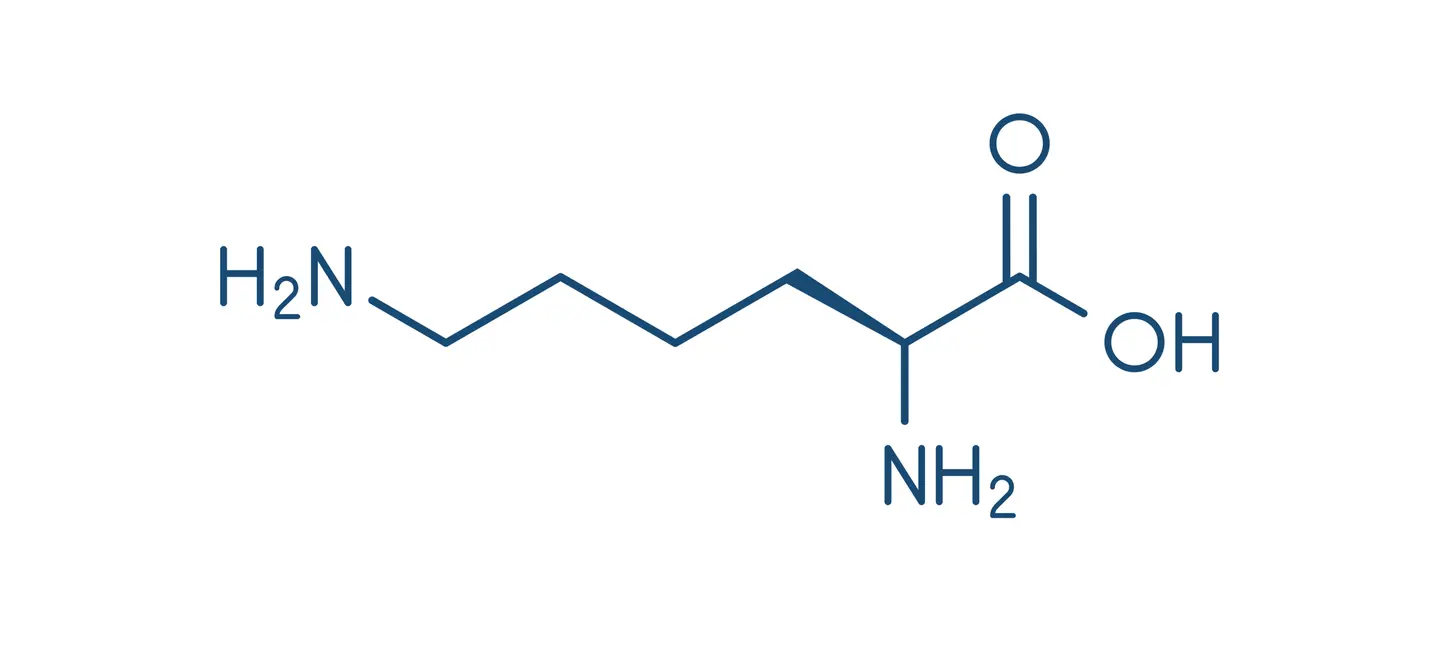
Lysine is an essential amino acid. The human body cannot make lysine, so it must be eaten in the diet. Sources include meat, fish, dairy, and eggs.
Lysine is a building block for making proteins in the body. It might also prevent the herpes virus from growing.
People use lysine for cold sores, canker sores, athletic performance, diabetes, and many other conditions, but there is no good scientific evidence to support most of these uses.
Is It Effective?
NatMed Pro rates effectiveness based on scientific evidence according to the following scale: Effective, Likely Effective, Possibly Effective, Possibly Ineffective, Likely Ineffective, Ineffective, and Insufficient Evidence to Rate.
- Cold sores (herpes labialis). Taking lysine by mouth might help prevent and heal cold sores. It's not clear if applying it to the skin helps.
There is interest in using lysine for a number of other purposes, but there isn't enough reliable information to say whether it might be helpful.
Is it Safe?
When taken by mouth: Lysine is possibly safe for most people when taken in doses up to 3000 mg daily for up to one year. It can cause side effects such as stomach pain and diarrhea.
When applied to the skin: Lysine is possibly safe for most people when used short-term.
Special Precautions & Warnings:
Pregnancy and breast-feeding: There isn't enough reliable information to know if lysine is safe to use when pregnant or breast-feeding. Stay on the safe side and avoid use.
Lysinuric protein intolerance: Lysine supplementation might cause diarrhea and stomach cramps in children who have this rare genetic disorder.
Gastrointestinal agents (5-HT4 agonist)
Interaction Rating=Minor Be watchful with this combination.
Lysine might reduce the effects of some gastrointestinal drugs called 5-HT4 agonists.
There are no known interactions with foods.
Lysine has most often been used by adults in doses up to 3 grams daily for up to 1 year. It's also available in different topical products such as creams. Speak with a healthcare provider to find out what type of product and dose might be best for a specific condition.
Hydrochlorure de L-Lysine, L-2,6-diaminohexanoic acid, Lisina, L-Lysine, L-Lysine HCl, L-Lysine Hydrochloride, L-Lysine Monohydrochloride, Lys, Lysine Hydrochloride, Lysine Monohydrochloride, Monochlohydrate de L-Lysine, Monochlohydrate de Lysine.
Information on this website is for informational use only and is not intended to replace professional medical advice, diagnosis, or treatment. While evidence-based, it is not guaranteed to be error-free and is not intended to meet any particular user’s needs or requirements or to cover all possible uses, safety concerns, interactions, outcomes, or adverse effects. Always check with your doctor or other medical professional before making healthcare decisions (including taking any medication) and do not delay or disregard seeking medical advice or treatment based on any information displayed on this website.
© TRC Healthcare 2024. All rights reserved. Use and/or distribution is permitted only pursuant to a valid license or other permission from TRC Healthcare.
